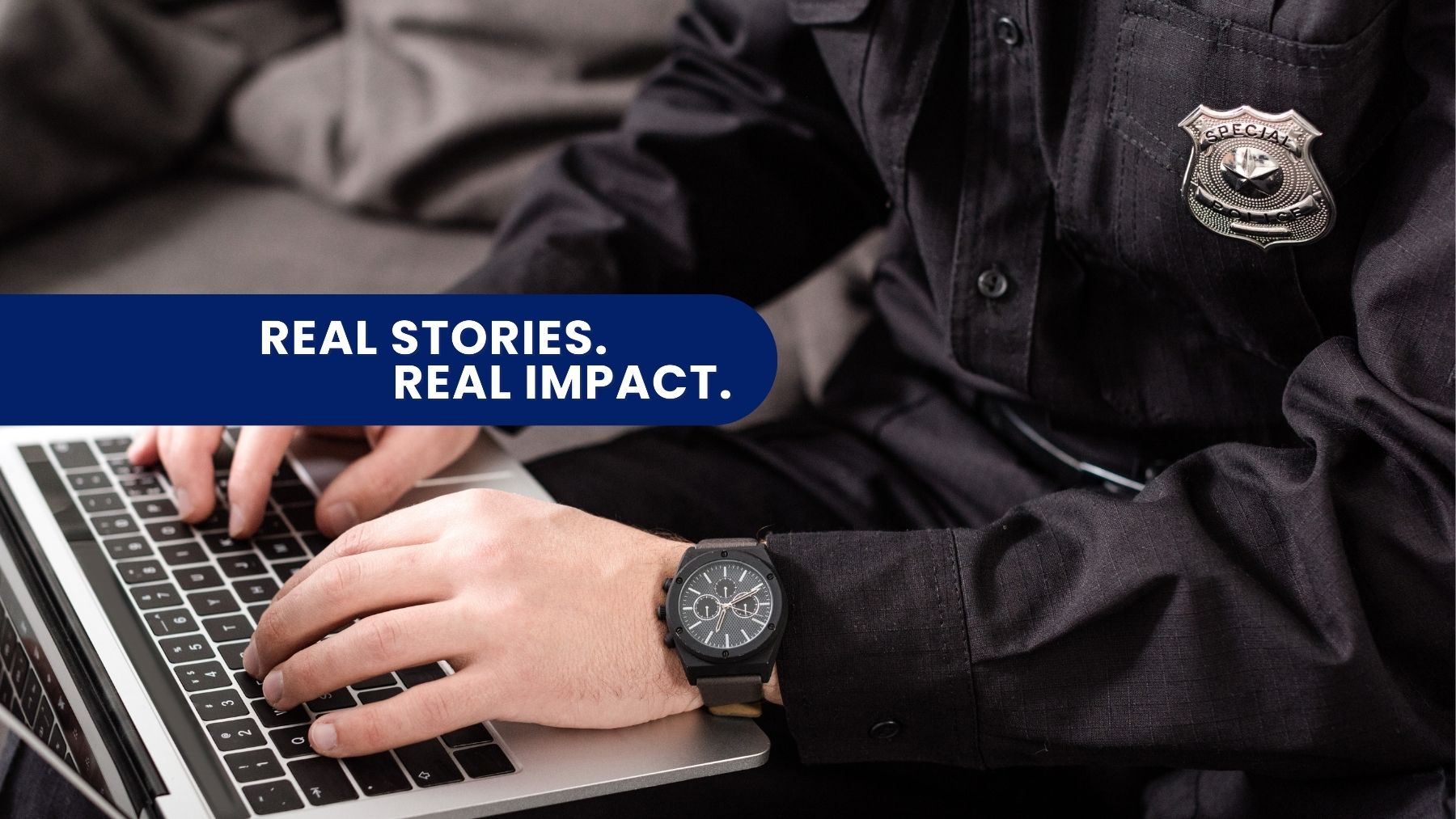
Nestled in the serene landscape of Menomonie, Wisconsin Aaron Bergh patrols the streets with a mission beyond traditional law enforcement. As a former patrol officer turned behavioral health officer for the Menomonie Police Department, Bergh’s focus extends to reaching individuals grappling with various challenges in the community. Bergh’s role centers on connecting those in need with vital resources for good health and peace.
“I was ready to retire,” Bergh reflects, recounting the weariness inherent in the cyclical nature of police work. The repetitive encounters with individuals trapped in cycles of abuse, mental health struggles, or addiction prompted him to seek a different path. For Bergh, law enforcement was never solely about making arrests; rather, it was about equipping himself with the right tools to serve by making a meaningful difference in people’s lives.
Unique Challenges of a Rural Community
Menomonie is a small city of about 17,000 people, the county seat and largest city of Dunn County, a quiet, pastoral region of farms and woodland in western Wisconsin’s driftless region. It’s a landscape cut by snaking streams slowly meandering to the mighty Mississippi and dotted by siloes.
The scenic landscape tends to distract from the hardships people here can face. High poverty rates and widespread isolation exacerbate mental health and addiction/substance use issues. For instance, in Dunn County, 31% of adults reported engaging in binge drinking, significantly surpassing the national rate of 15%. These challenges, compounded by limited resources, present significant obstacles to ensuring the safety and well-being of the community. Moreover, those who are providing assistance may also face heavy workloads of their own, which can diminish their ability to dedicate sufficient time and attention to each case, leading to potential lapses in follow-through.
“When I was on patrol, we didn’t want to see people engage in that cyclical behavior. We wanted them to stop committing the burglaries or the shoplifting or the drugs, but … we didn’t have the tools to engage people, other than to arrest them, issue them a citation, or let them go,” noted Bergh. “And you know, tomorrow, or next week, they’re going to be doing the same behavior.”
When I was on patrol, we didn’t want to see people engage in that cyclical behavior but we didn’t have the tools to engage people.
Aaron Bergh, Behavioral Health Officer. Menomonie Police Department
A Different Approach to Supporting Residents with SUD
In his new role as behavioral health officer, Bergh can better serve in a way he feels makes a difference. He works with fellow patrol officers to create awareness around the community and digital resources like the CHESS Health closed-loop referral platform and peer-supported navigation and messaging tool. “Prior to getting into this role, I never would have realized the full benefit that peer support plays in a person’s path to recovery. Of course, everybody’s unique but regardless of whatever path a person takes, having a community of people who understand and who have walked the walk is important.” Bergh promotes the text-based peer support service connecting individuals with peers who assist in identifying needs and offering recommendations for local support services. “(The messaging service) is a great option, especially for those people in a more rural area. Having a remote option for getting connected to support is extraordinarily useful.”
In addition to the peer-supported text-based service, Bergh is a strong proponent of eIntervention. This platform facilitates a closed-loop referral process with community agencies like Arbor Place, which offers prevention, treatment, and recovery services. “It’s a seamless referral service,” Bergh says. Once a referral is made, he can utilize the eIntervention portal to check on progress. “What I love about the portal is you get to see when the referral has been reviewed, and you get to see if someone is actually taking action,” he notes. “There’s a certain level of accountability with it, versus, you know, sending an email or a report and then two months later someone says, ‘did you get that?’” The closed-loop process helps ensure that no emails, reports, messages – or people – fall through the cracks. It’s keeping him connected and it’s helping him do a better job, helping him find the right tools to better serve his community.
With every referral tracked and every action monitored, he ensures that no individual is overlooked or left behind, and he can witness firsthand the transformative impact his efforts have on changing perceptions and improving lives within the community. For Bergh, these interactions serve as a constant reminder of the meaningful impact he makes, driving his unwavering commitment to fulfill his mission to serve and protect.
